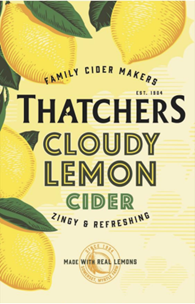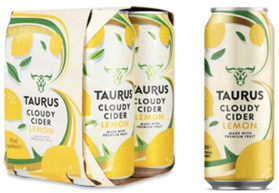Cloudy day for Aldi as Thatchers secures win in English Court of Appeal 'lookalike' case
Published on 6th February 2025
Ruling finds supermarket took unfair advantage of reputation of drink makers' trade mark in selling lookalike cider

The Court of Appeal in Thatchers Cider v Aldi has overturned a High Court decision and ruled that the supermarket group infringed the drinks producer's trade mark that covered the "get-up" of its cloudy cider lemon drink by taking unfair advantage through the sale of a lookalike product.
The judgment is a significant win for brands with a reputation that seek to prevent lookalike products. It underscores the importance of registering get-up as a trade mark and its promotion to attract a reputation – which was an approach that was crucial to Thatchers' success.
The first instance decision received a lot of criticism from both brands and practitioners for making it harder to protect against lookalikes, even though Aldi used Thatchers cider as a benchmark when designing its own cider.
The Court of Appeal's judgment confirms that brands with a reputation can receive extended trade mark protection and it provides clear guidance on what will amount to taking unfair advantage. The decision calls into question the marketing strategy of many discount outlets who trade on a "like brands but cheaper" basis.

Copycat dispute
Thatchers owns a UK registered trade mark covering the get-up of its cloudy lemon cider drink, which it affixes to the front and back of each can of Thatchers' product, as well as, in a slightly modified form, on the cardboard packaging of four-can packs.
Thatchers claimed that Aldi infringed its trade mark by the sale of its Taurus Cloudy Lemon Cider product. At first instance, Thatchers claimed trade mark infringement on the basis of likelihood of confusion and taking unfair advantage of and/or detriment to the distinctive character or reputation of its mark. It also claimed passing off.

At first instance, the Intellectual Property Enterprise Court (IPEC) found that there was a low degree of similarity between Thatchers' mark and Aldi's product, meaning that there was no real likelihood of confusion.
Although the judge found that Thatchers' mark had a reputation, she was not satisfied that Aldi had taken unfair advantage. Thatchers' passing off claim also failed.
Thatchers appealed against the judge's finding on unfair advantage only – the likelihood of confusion and passing off findings were not challenged.
Similarity assessment
The Court of Appeal held that the first instance judge was wrong in her assessment of the similarity between Thatchers' trade mark and Aldi's sign.
In particular, the Court of Appeal concluded that:
- the judge had been wrong to find that a point of difference between Thatchers' mark and Aldi's sign was that the mark was two-dimensional whereas the sign was three-dimensional;
- Aldi's sign should have been understood to be what was identified in Thatchers' pleadings – "the graphics on the cans and on the cardboard 4-can pack" of Aldi's product – not Aldi's product itself; and
- the judge had been wrong to disregard how Thatchers' used its two-dimensional mark on the surface of a three-dimensional cylindrical can and the cardboard packaging.
For these reasons, the Court of Appeal determined that the IPEC's assessment of similarity was flawed, meaning the similarity should have been assessed as being "somewhat greater" than was found at first instance.
Intention to take advantage
The IPEC was found to be wrong in its assessment of Aldi's intention. The fact that Aldi did not intend to deceive or confuse consumers did not negate the finding that it did intend to take unfair advantage of Thatchers' trade mark. Aldi had departed from its usual "Taurus" cider house styles and imitated minor details from Thatchers' trade mark. Documentary evidence on Aldi's design process also supported an intention to take advantage, as it had used Thatchers' get-up as its benchmark.
In re-assessing whether Aldi did have an intention to take advantage, the Court of Appeal stated that it was plain that Aldi's sign closely resembled Thatchers' mark and that could not have been coincidental. This led to the Court of Appeal's "inescapable conclusion" that Aldi intended for its sign to remind consumers of Thatchers' trade mark and, therefore, it intended to take advantage of the reputation of Thatchers' mark to assist in selling its product.
Unfair advantage
Thatchers argued that this case fell within the Court of Justice of the EU's description in L'Oréal v Bellure of a "transfer of the image of the mark" and "riding on the coat-tails of that mark". At first instance, the judge made an error of principle in failing to give reasons why she rejected this argument. In reassessing the issue, and bearing in mind the judge's other errors, the Court of Appeal found that this case fell "squarely" within L'Oréal v Bellure.
As a result of its intention to take advantage of Thatchers' mark, Aldi was able to achieve substantial sales of its product in a short amount of time, without any marketing spend. In the absence of evidence from Aldi that it would have achieved comparable sales without using the sign, the Court of Appeal held that it was a legitimate inference that Aldi obtained the advantage that it indented to obtain from using the sign. That was an unfair advantage because it allowed Aldi to benefit from Thatchers' investment in developing and promoting its product rather than competing solely on quality and/or price and its own marketing efforts.
Osborne Clarke comment
The Court of Appeal's decision will be welcome news to well-known brand owners and should make it easier to stop lookalike products, particularly against outlets that routinely engage in this kind of copycat behaviour. The decision emphasises the importance of registering get-up as a trade mark and promoting that get-up to attract a reputation. Thatchers' registration proved to be a very useful form of protection against Aldi's lookalike product.
From the evidence, it was clear that Aldi deliberately redesigned its product to remind consumers of Thatchers' cider and, as a result, Aldi's sales increased without any advertising spend. The Court of Appeal found that this clearly amounted to an unfair advantage and was not prepared to allow Aldi to profit from Thatchers' investment in developing and promoting its brand and product.
While this decision should help well-known brands tackle lookalikes in the future, Aldi is reported to be pursuing an appeal to the Supreme Court, so this might not be the last we hear on these issues. Although, it remains to be seen whether the Supreme Court would grant permission.





